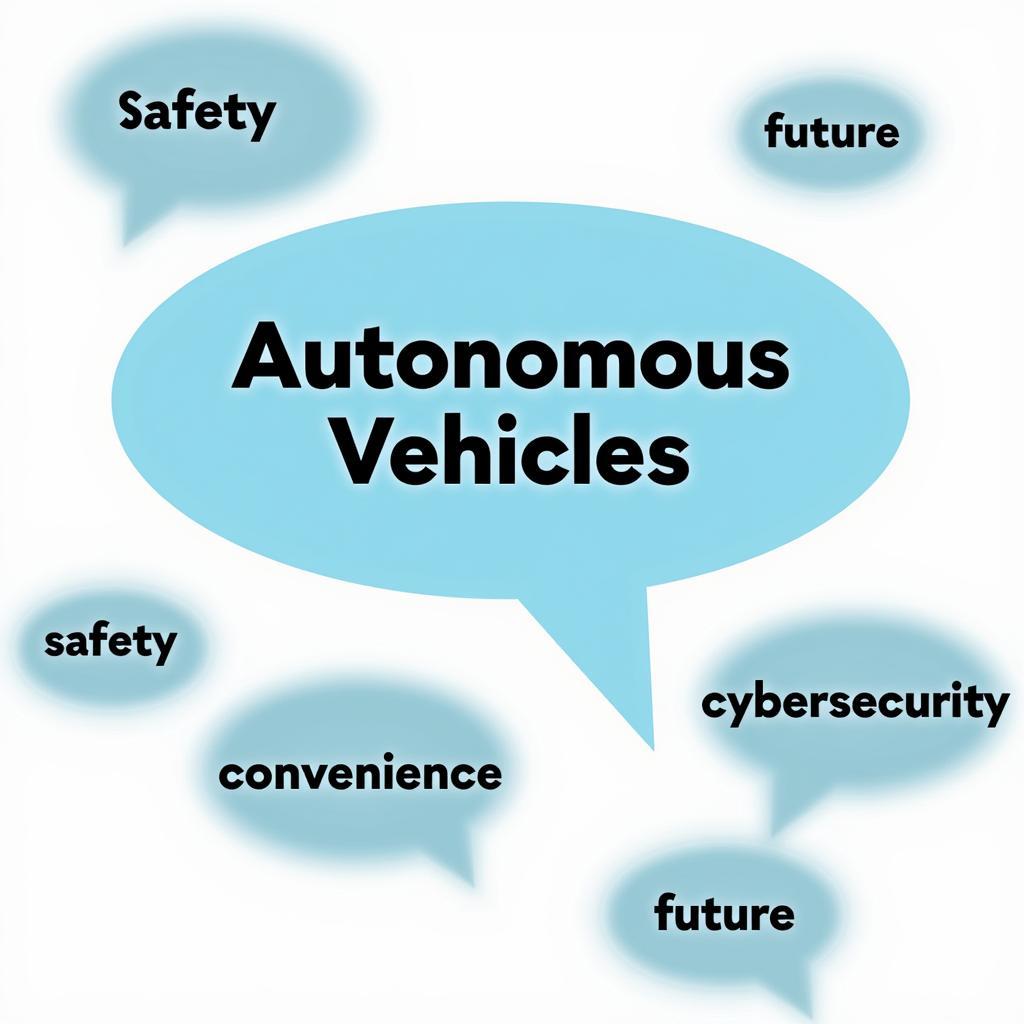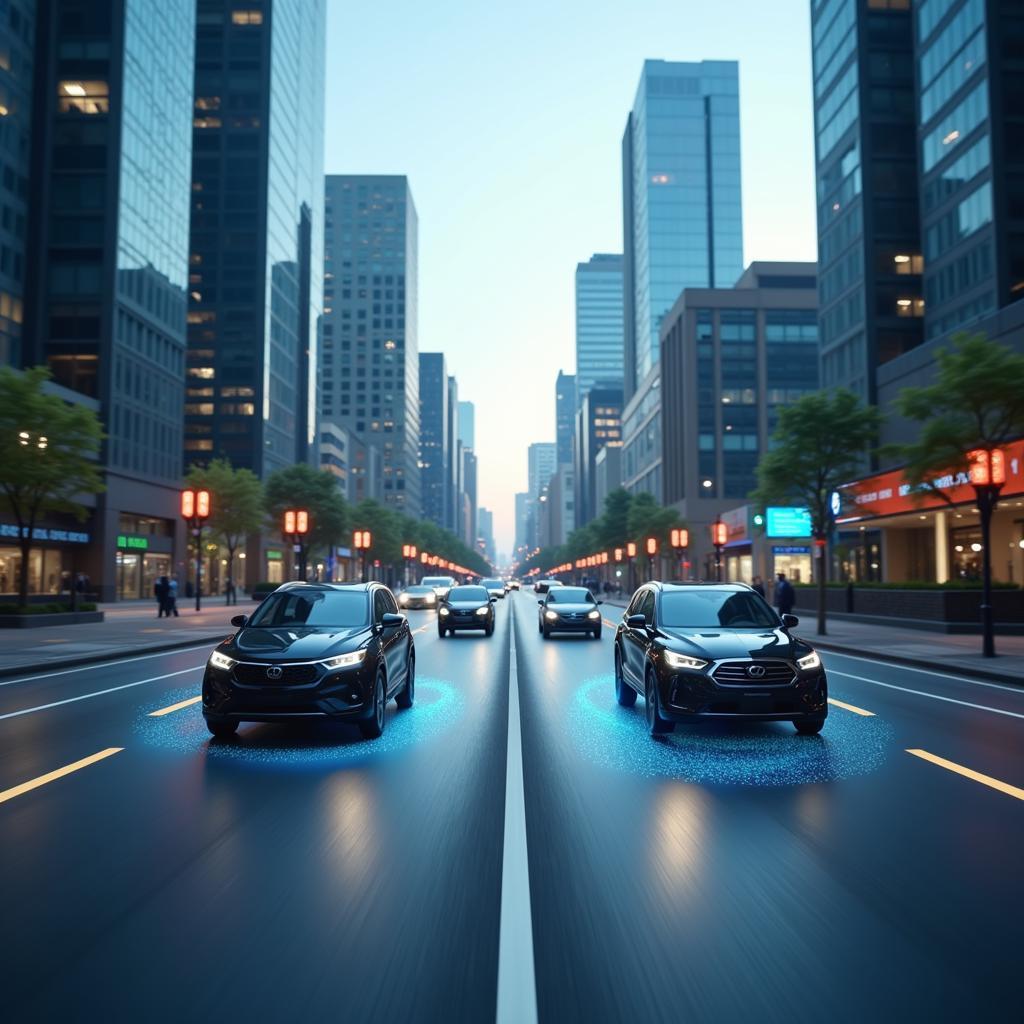The allure of autonomous cars promises a future of effortless commutes and safer roads. But amidst the excitement surrounding self-driving technology, a critical issue lies largely undiscussed: the cybersecurity vulnerability of these complex systems. This vulnerability represents a significant challenge, potentially impacting not just individual drivers, but also public safety and national security. What are the implications of this silent threat, and how can we address the problem with autonomous cars that no one’s talking about?
The Cybersecurity Nightmare: Hacking the Self-Driving Car
Connected cars are essentially computers on wheels, intricately networked and reliant on software for crucial functions. This interconnectedness, while offering convenience and advanced features, opens a Pandora’s Box of cybersecurity risks. From malicious attacks targeting individual vehicles to large-scale disruptions of transportation systems, the potential consequences are alarming. Imagine a scenario where hackers gain control of a fleet of autonomous vehicles, causing widespread chaos and potentially even fatalities. The problem with autonomous cars that no one’s talking about is not a hypothetical scenario; it’s a very real and present danger.
How Vulnerable Are Autonomous Cars?
Autonomous vehicles rely on a complex network of sensors, cameras, and software to navigate and make driving decisions. Each component represents a potential entry point for hackers. Manipulating sensor data could trick the car into misjudging distances, leading to collisions. Compromising the car’s control systems could allow hackers to take over steering, acceleration, and braking, effectively turning the vehicle into a weapon. The sheer complexity of these systems makes them exceptionally challenging to secure completely.
The Silent Threat: Why Isn’t This Being Discussed More?
The relative silence surrounding this critical issue stems from several factors. First, the technology is still relatively new, and the full extent of the risks hasn’t been fully realized. Second, automakers are hesitant to highlight potential vulnerabilities for fear of impacting consumer confidence. Finally, there’s a lack of clear regulatory frameworks and industry standards for cybersecurity in autonomous vehicles.
 Lack of Cybersecurity Discussion for Autonomous Vehicles
Lack of Cybersecurity Discussion for Autonomous Vehicles
What Can Be Done to Address the Problem with Autonomous Cars That No One’s Talking About?
Addressing the cybersecurity challenge requires a multi-pronged approach involving automakers, technology companies, regulators, and even individual drivers.
-
Robust Cybersecurity Systems: Automakers must prioritize cybersecurity from the ground up, designing systems with multiple layers of protection and redundancy.
-
Regular Software Updates: Just like computers and smartphones, autonomous vehicles will require regular software updates to patch vulnerabilities and stay ahead of evolving threats.
-
Industry Standards and Regulations: Clear regulations and industry-wide cybersecurity standards are crucial to ensure a minimum level of security across all autonomous vehicles.
-
Public Awareness and Education: Raising public awareness about the cybersecurity risks associated with autonomous vehicles is essential to driving demand for more secure systems.
The Future of Secure Autonomous Driving
“The automotive industry must recognize that cybersecurity is not an optional add-on, but a fundamental requirement for the safe and successful deployment of autonomous vehicles,” says Dr. Anya Sharma, a leading cybersecurity expert specializing in automotive systems. The future of autonomous driving hinges on our ability to address the problem with autonomous cars that no one’s talking about.
 Future of Secure Autonomous Driving
Future of Secure Autonomous Driving
Conclusion
The problem with autonomous cars that no one’s talking about – cybersecurity – poses a significant threat to the future of this transformative technology. While the potential benefits of autonomous vehicles are undeniable, we must prioritize cybersecurity to ensure these vehicles are safe, reliable, and resilient against malicious attacks. By working together, we can build a future where autonomous driving is not only convenient but also secure. Connect with AutoTipPro at +1 (641) 206-8880 or visit our office at 500 N St Mary’s St, San Antonio, TX 78205, United States for more information and support.





Leave a Reply